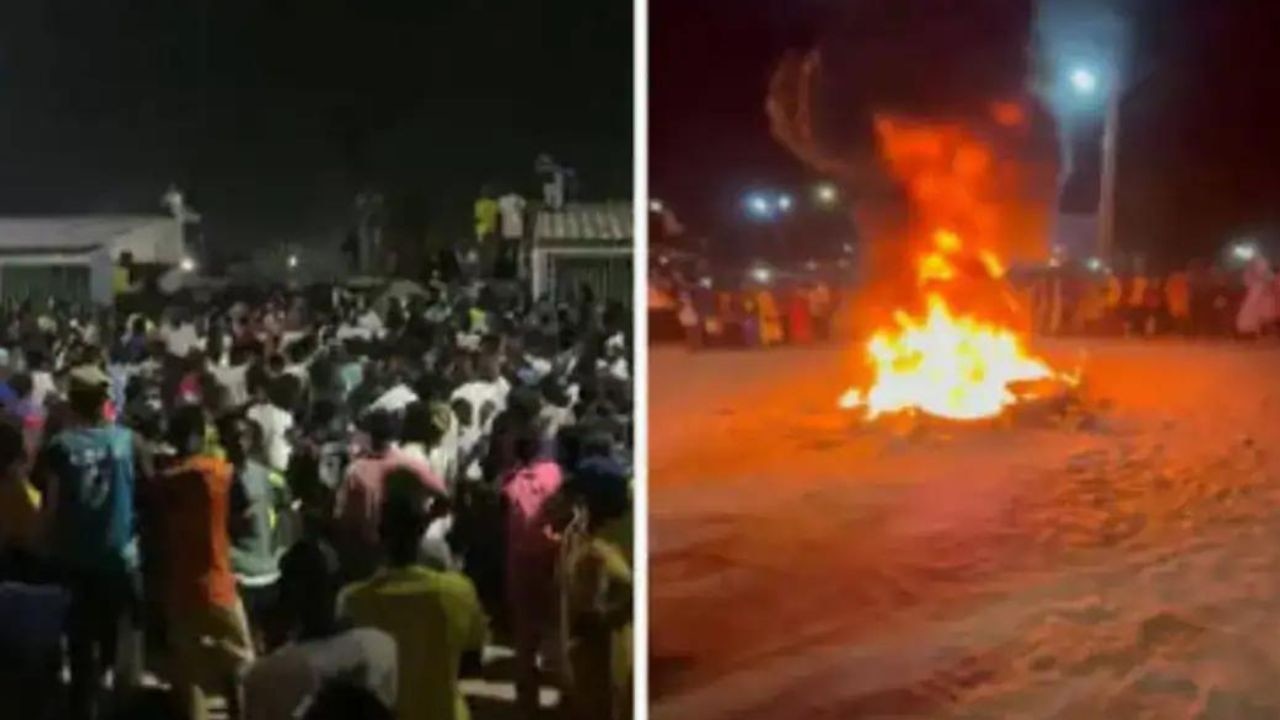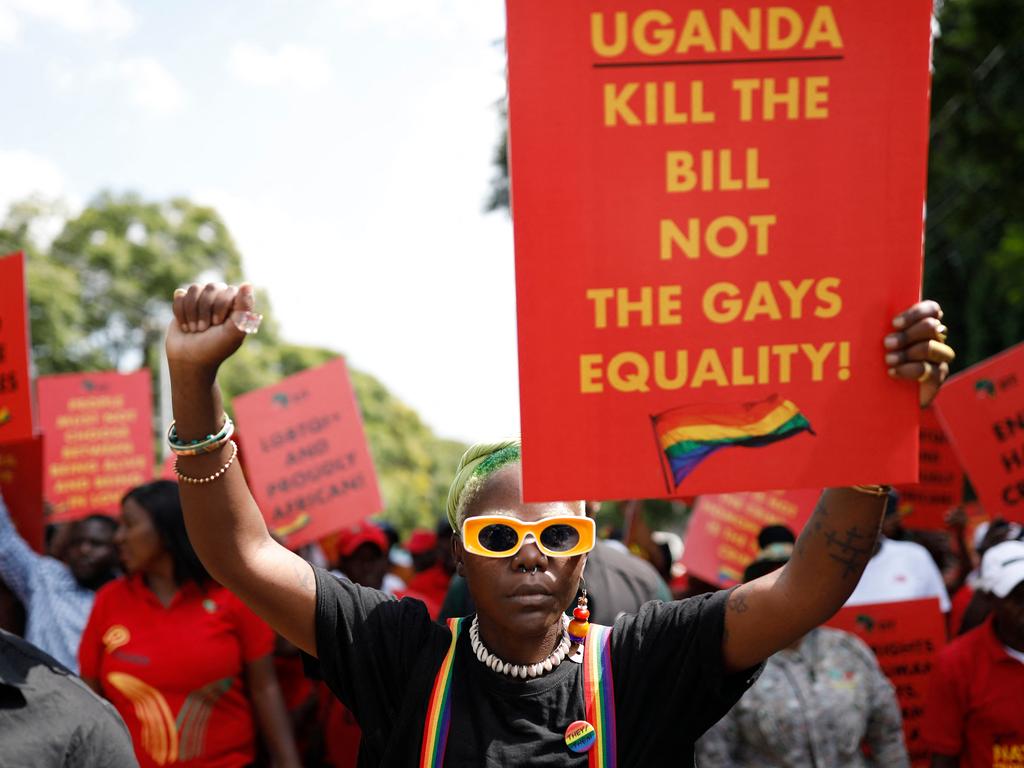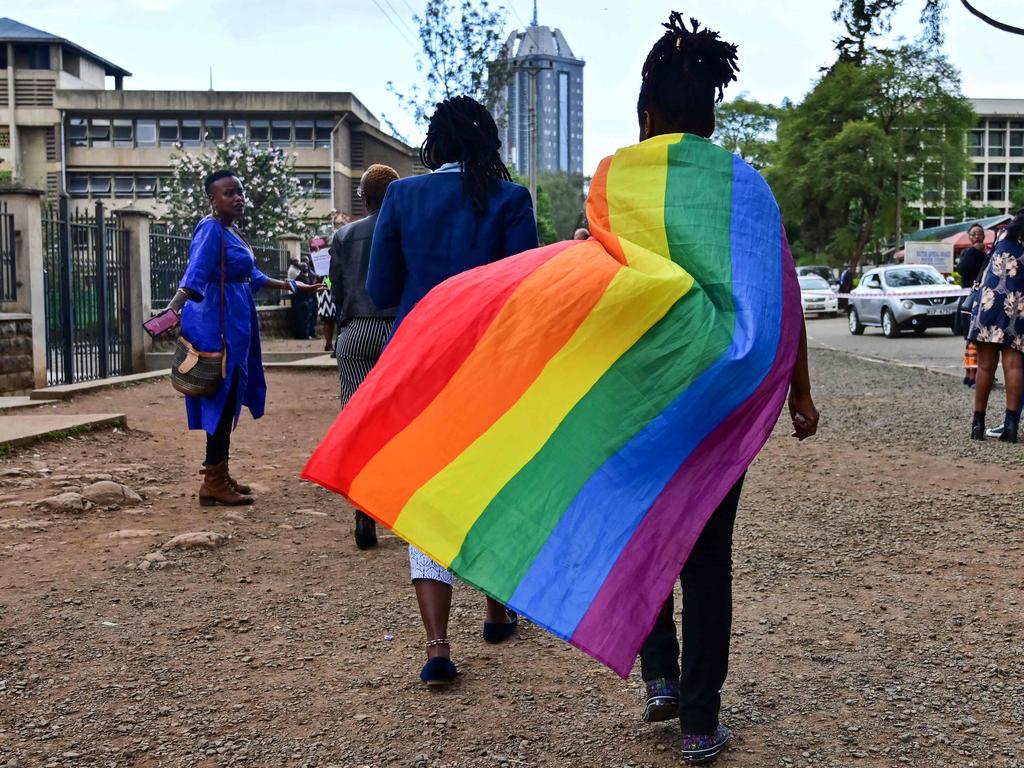‘Utterly disgusting’ homophobic act shows country’s downfall
A moment described as “the highest form of Barbarism in the 21st century” was captured as a crowd of hundreds gathered. Warning: Distressing.

As harrowing anti-gay bills in Africa continue to unfold, LGBTQ+ communities cannot escape the ravaging grip of homophobia, not even in death.
A distressing incident took place in Senegal, West Africa, where the body of a Senegalese man, who was recently buried, was exhumed 24 hours later and set on fire publicly on the streets, reportedly because he was gay.
The remains of the 31-year-old, named locally as Cheikh Fall, had been initially rejected by the authorities in Touba, the holy city of the Islamic Mouride brotherhood over the perception that he was gay.
His family, left with no choice, opted to bury him close to their home on October 27 but the local community objected, so he was secretly buried at the Léona Niassene cemetery in the central Senegalese town of Kaolack.
Just a day later, the body was exhumed and set ablaze publicly in a gathering of hundreds. A video from the scene show a crowd of hundreds gathering around the fire.

Although being a predominantly anti-LGBTQ+ country and a dangerous place for queer people, the incident has sparked outrage in Senegal and has continued to provoke reactions.
Abasse Yaya Wane, the head of the Kaolack Public Prosecutor’s Office, said: “These extremely serious acts, which amount to barbarism, challenge the authorities and cannot go unpunished.”
Multiple activists and rights groups have also spoken out against it.
US activist, Paul Connor told news.com.au it was “the highest form of Barbarism in the 21st century”.
While Tayo Adeoluwa, a UK-based Nigerian queer activist said: “It’s obvious these people don’t see us as humans and would go to any extent to annihilate us. If they could do this to a dead body, what do you think they would do to a living queer person? It’s utterly disgusting.”
Amnesty International’s Senegal chapter condemned the incident, saying that the participants had violated “the dignity of the deceased and his family.”
Senegal criminalises same-sex relations for both men and women, with penalties of a maximum of five years imprisonment and a fine. There are records of these anti-LGBTQ laws being enforced in recent years and LGBTQ people are regularly subjected to discrimination and violence.
An American man visiting Senegal last year was brutally attacked by a crowd of nearly 100 people. Naked and bleeding he was paraded through the streets as they shouted homophobic slurs, saying he doesn’t deserve to live. Three men were later arrested.

Across parts of Africa, LGBTQ+ people are suffering under ever increasing anti-gay laws.
In West Africa, over 200 gay men have been arrested within the last three months. More than 70 young people were arrested on October 24 in northern Nigeria for allegedly organising a gay wedding ceremony.
“We apprehended 76 suspected homosexuals at a birthday party organised by one of them who was due to marry his fiance at the event,” said Buhari Saad, the spokesman for the Nigeria Security and Civil Defence Corps (NSCDC) in Gombe State, a paramilitary organisation under the government.
The suspect denied the allegation. “There was no wedding, only birthday,” he said in a broadcast aired by local media.
Homosexuality has been illegal in Nigeria since post colonial rule, while the Nigeria’s 2014 Same-Sex Marriage (Prohibition) Act carries a 14-year prison sentence on anyone who “[enters] into a same-sex marriage contract or civil union,” and a 10-year sentence on individuals or groups, including religious leaders, who “witness, abet, and aid the solemnisation of a same-sex marriage or union”.
In northern states of Nigeria, where the 74 men are awaiting trial, the picture is even more dire. Under sharia law, homosexual relations are punishable with death by stoning. However, this sentence has never been applied.
The NSCDC spokesman refused to say whether the suspects arrested would be charged under sharia law or ordinary law.

Activists and rights groups have said that mass arrests and detention of queer Nigerians these past few months appear to be calculated witch hunts, done without proper investigations.
In August, police arrested more than a hundred men in similar circumstances in Delta state, southern Nigeria. And another eight gay men were also recently arrested and sentenced to three months in prison for cross dressing in northern Nigeria last week.
The human rights organisation Amnesty International has called for an end to this “witch-hunt”.
“In a society where corruption is endemic, the law prohibiting same-sex relationships is increasingly being used for harassment, extortion and blackmail by law enforcement officials and other members of the public,” they condemned.
“Everyday is a puzzle for LGBTQ individuals in Africa. Whenever you step out of your house, you’re not sure you’ll make it home that day. Either you’re harassed by strangers all day or you get extorted by the authorities including cops. In worse scenarios, an angry mob would attack you and possibly lynch you to death off a perception that you’re a homosexual,” Tayo added.
Daniel Anthony is a Nigerian writer living in Lagos, Nigeria.





